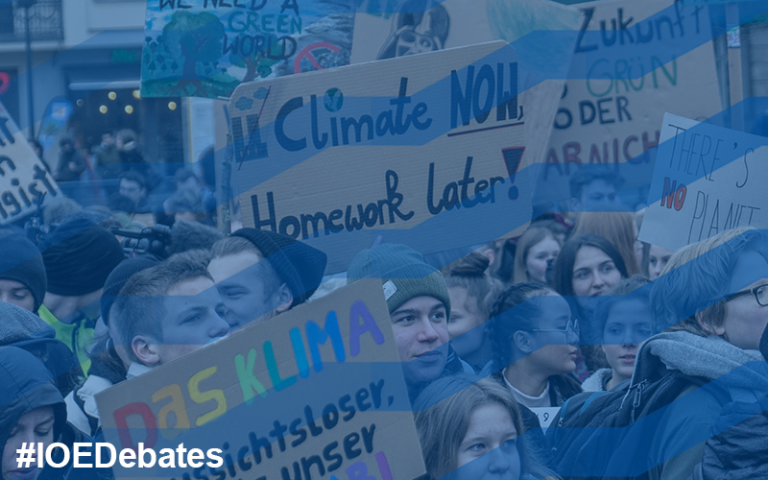What if… we wanted to better equip young people to address climate change?
18 March 2021, 5:45 pm–6:45 pm

In these times of ‘climate emergency’, is the National Curriculum and the knowledge and skills it seeks to develop fit-for-purpose?
This event is free.
Event Information
Open to
- All
Availability
- Yes
Cost
- Free
Organiser
-
Kate Thomas
Watch the debate
Listen
You can also listen to the podcast on:
Environmental degradation is the global challenge of our times, and the sheer scale of the task facing humanity is a growing feature of public debate.
Following international treaties on climate change, the UK Government has made clear its own ambition for reducing carbon emissions. Commentators and campaigners have been more explicit about the need to recalibrate fundamentally our relationship with nature and the profound implications for our current way of life.
As demonstrated vividly by the climate strikes among school pupils, many young people feel passionate about ‘saving the planet’, but this cause is also a source of anxiety and even a sense of helplessness. In these times of ‘climate emergency’, is the National Curriculum and the knowledge and skills it seeks to develop fit-for-purpose?
What contribution, if any, should campaigning organisations and their materials make to the delivery of the curriculum on this matter? How do schools avoid simply adding to young people’s climate anxiety in the face of such a momentous challenge?
Speakers
- Douglas Bourn, Professor of Development Education, UCL Institute of Education (IOE).
- Laura Kravac, Head of Programmes, Action for Conservation.
- Miranda Lowe, Principal Curator and museum scientist, Natural History Museum, London.
- Alex Standish, Associate Professor of Geography Education, IOE.
- Chair: Sue Rogers, Director (Interim), IOE.
Find out more about the speakers of this debate. Join the conversation on Twitter at #IOEDebates
Links
Image: Sign reads 'climate now, homework later!' at pupils' climate protest in Berlin. Photo by Mika Baumeister from Unsplash.
 Close
Close

